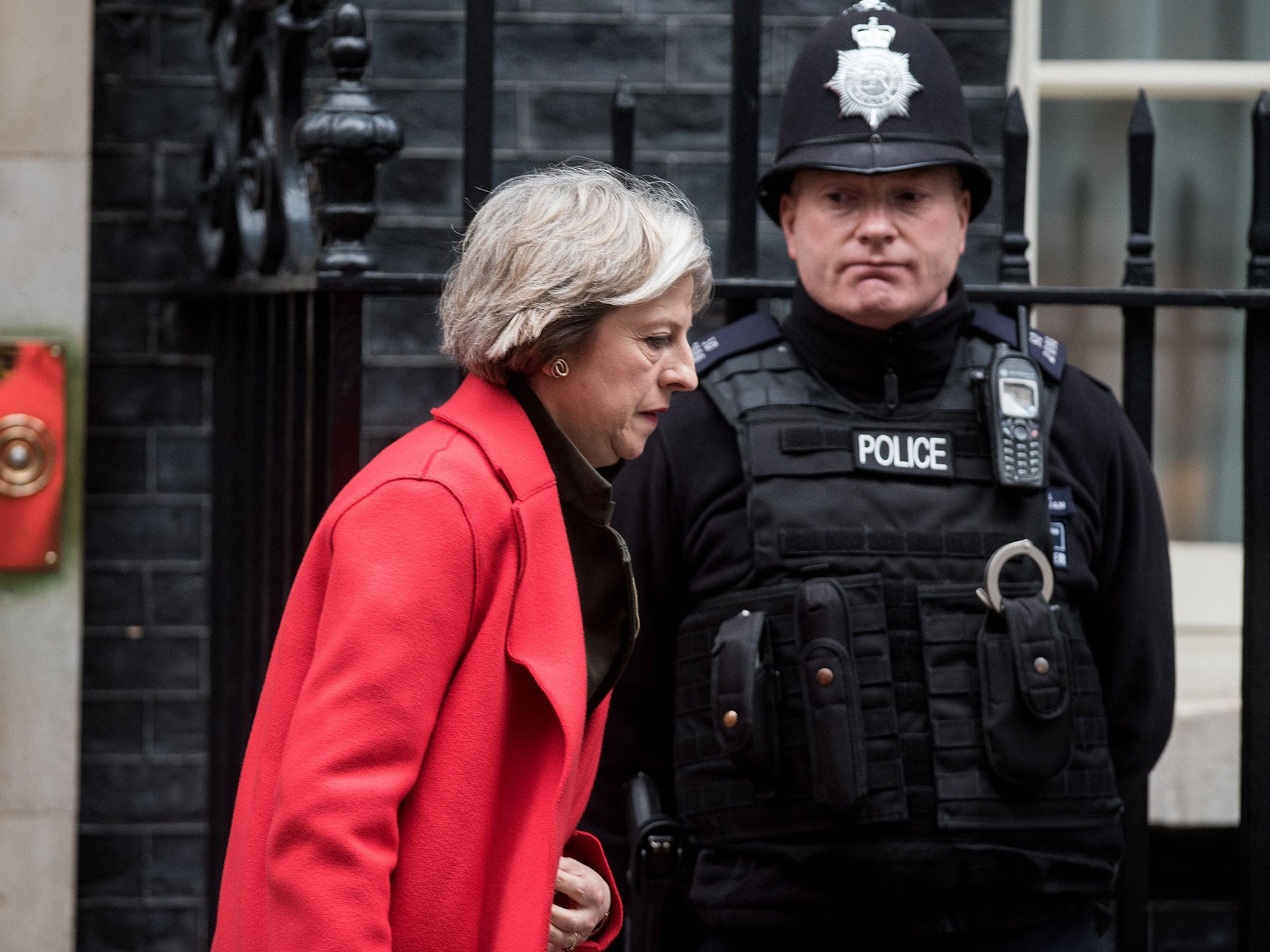Theresa May 'misled' by security services over banned students
Exclusive: Judges announced they were quashing Home Office exclusion orders against two Pakistani nationals

Your support helps us to tell the story
From reproductive rights to climate change to Big Tech, The Independent is on the ground when the story is developing. Whether it's investigating the financials of Elon Musk's pro-Trump PAC or producing our latest documentary, 'The A Word', which shines a light on the American women fighting for reproductive rights, we know how important it is to parse out the facts from the messaging.
At such a critical moment in US history, we need reporters on the ground. Your donation allows us to keep sending journalists to speak to both sides of the story.
The Independent is trusted by Americans across the entire political spectrum. And unlike many other quality news outlets, we choose not to lock Americans out of our reporting and analysis with paywalls. We believe quality journalism should be available to everyone, paid for by those who can afford it.
Your support makes all the difference.Britain’s security services gave Home Secretary Theresa May “incomplete, inaccurate and misleading” intelligence as the basis for banning two al Qaeda bomb plot suspects from returning to the UK, it has been ruled.
Judges at the Special Immigration Appeals Commission announced they were quashing Home Office exclusion orders against the two Pakistani nationals.
Rizwan Sharif and Umar Farooq were excluded from Britain in December 2009, eight months after they had been arrested as part of a suspected al Qaeda plot to blow up Manchester’s Arndale shopping centre. The original decision had been taken in December 2009 after then Home Secretary Alan Johnson had personally directed they be excluded from the UK.
Sharif and Farooq, who had been in the country on student visas, had left Britain voluntarily two months earlier after being threatened with deportation. The terror allegations had been dropped due to lack of evidence.
But in 2011, two years after their return to Pakistan, according to the Siac ruling published on 8 December, the men asked Theresa May to reconsider the 2009 decision.
A year later in November 2012, she was sent a crucial “letter of recommendation” from the security service that formed the basis of her move to “maintain” Mr Johnson’s decision. It was Ms May’s decision which the two men appealed against in October. The judges ruled that the letter she was given contained “materially incomplete and in one or more respects inaccurate and misleading” information. No details about the misleading intelligence can be released for security reasons.
The judges concluded: “The Secretary of State did not have all of the relevant information to enable her to answer the question correctly. For that reason and that reason only, her decision must be quashed.” They said the matter would now be sent back to Mrs May for her to “reach a fresh decision”.
The case is being covered by the Bureau of Investigative Journalism as part of its long-running examination of the use of secret evidence in UK courts, including for counter-terrorism hearings. Such evidence is usually highly sensitive intelligence material.
Sharif and Farooq, who deny they pose any threat to national security, were among 12 mostly foreign students arrested in April 2009 as part of a high-profile counter-terrorism operation. No bomb was ever found and the UK case against the 12 collapsed. Of the group only Abid Naseer, the alleged ringleader, was ever convicted – in a US court earlier this year.
Subscribe to Independent Premium to bookmark this article
Want to bookmark your favourite articles and stories to read or reference later? Start your Independent Premium subscription today.